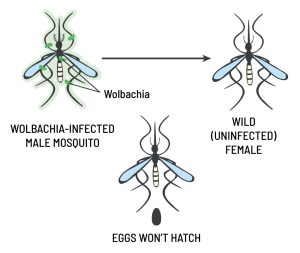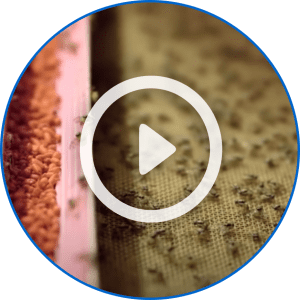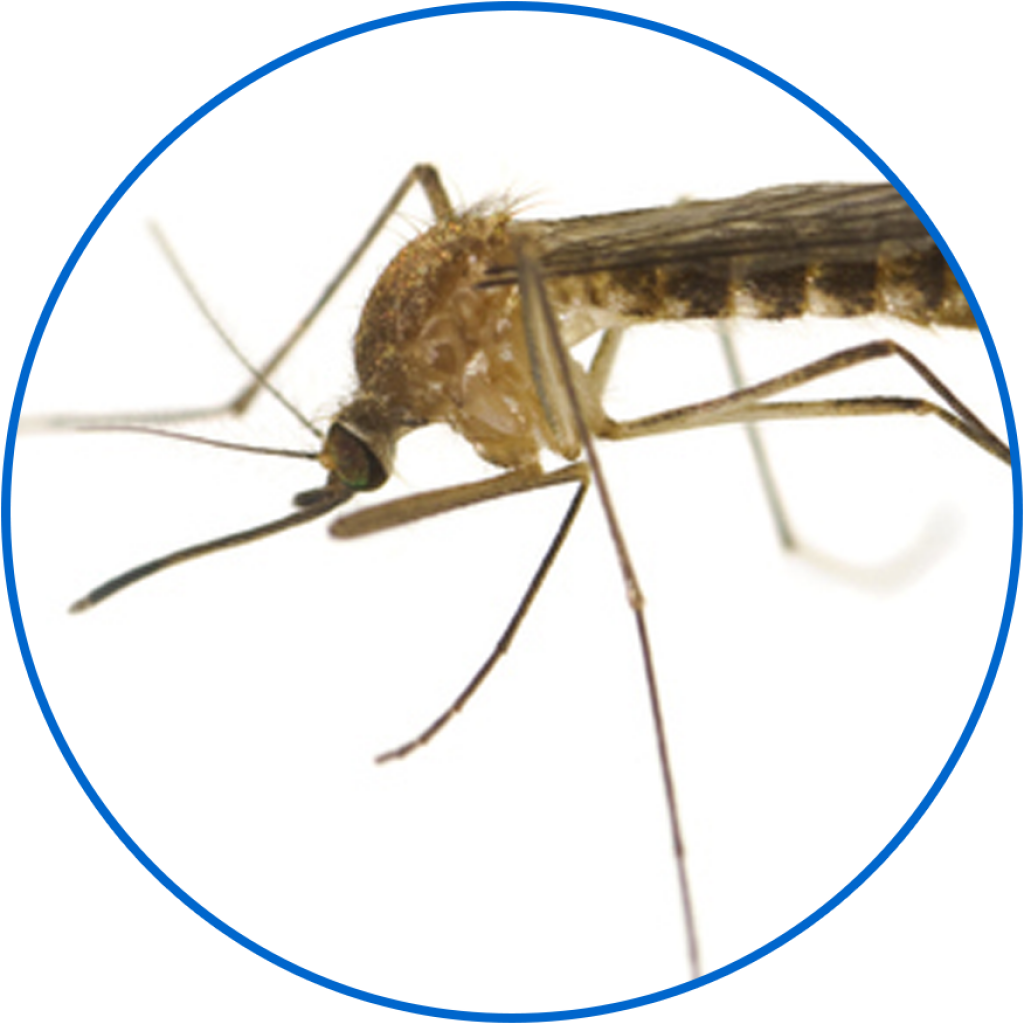INNOVATIVE CONTROL: PROTECTING OUR COMMUNITY
The invasive mosquitoes Aedes aegypti and Aedes albopictus are spreading across California, including Sacramento and Yolo counties. These mosquitoes aren’t just annoying; they can carry and spread dangerous diseases like dengue, Zika, and chikungunya.
Since their first detection in 2019 within our service area we have been working hard to track and control their spread.
Invasive Aedes lay their eggs in small, sometimes hidden containers in backyards and patios – areas where mosquito control agencies cannot easily inspect and control. Due to the nature of these mosquitoes, and the public health risks they pose, new methods of control are needed. Many agencies are currently exploring innovative, environmentally friendly methods to help reduce the populations of these mosquitoes which can pose a public health threat to the residents we serve. For more about invasive Aedes mosquitoes, click here.

Sterile Insect Technique (SIT): A proven, eco-friendly method to stop mosquitoes from reproducing.
How It Works: There are multiple SIT methods available including the use of Wolbachia-infected male mosquitoes, irradiated males, and genetic modification. Each of these methods are species specific. Each SIT method works a little differently, but each results in an interruption to the reproduction cycle, leading to a dramatic drop in mosquito numbers.
Wolbachia: Nature’s Own Defense
Wolbachia: a naturally occurring bacterium found in many insects—but not in Aedes aegypti—can help reduce mosquito populations.
How It Works: Male mosquitoes infected with Wolbachia are effectively sterile because when they mate with wild female mosquitoes that do not carry Wolbachia or have a different type of Wolbachia, the resulting eggs do not hatch.
Safe and Targeted: This method only affects Aedes aegypti, leaving other insects unharmed.
Detailed Wolbachia information from the National Environment Agency.
World Mosquito Program video on Wolbachia
IRRADIATED MALE MOSQUITOES
A technique long used in agriculture is now being applied to mosquito control.
How It Works: Male mosquitoes are sterilized using low doses of radiation before being released. Female mosquitoes only mate once, but can lay multiple batches of eggs. When female mosquitoes mate with sterile males, she will not lay viable eggs. Proven Success: This method has been successfully used for decades to control pests like Mediterranean fruit flies and screwworms.
Learn More:
- International Atomic Energy Agency on Mosquito Sterilization
- Medfly Control in California, pt. 1
- Medfly Control in California, pt. 2
GENETIC MODIFICATION OF MOSQUITOES
While not currently planned for Sacramento and Yolo Counties, some areas are testing genetically modified mosquitoes as a way to reduce populations.
How It Works: Oxitec’s Friendly™ Mosquitoes carry a self-limiting gene that prevents female offspring from surviving, reducing future generations. Where It’s Being Tested: Florida Keys and select locations worldwide.
Learn More:
LEARN MORE ABOUT
FRIENDLY™ TECHNOLOGY
FRIENDLY™ TECHNOLOGY
LEARN MORE ABOUT STERILE INSECT TECHNIQUE
Frequently Asked Questions about SIT
Read this blog about SIT and DeBug Fresno.
WHAT YOU CAN DO…
Even with these advanced methods, you play a key role in mosquito control.
Dump and Drain: Get rid of standing water around your home every week.
Defend: Use insect repellent and wear protective clothing.
Report: Seeing unusual mosquito activity? Let us know!
Find More Prevention Tips Here
Together, we can protect our community and stop the spread of invasive mosquitoes. Stay informed and join the fight!





